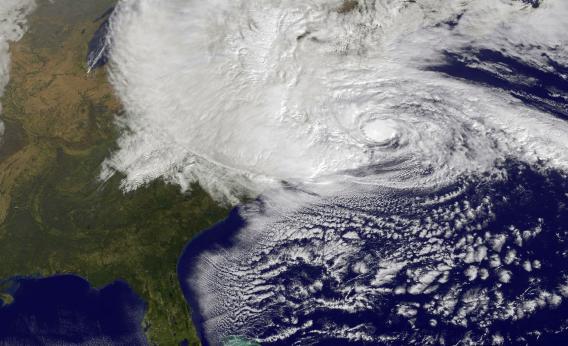You can never really be sure how anyone - even the most successful person - will react to tough times until they have actually experienced them. The proof is in the pudding, not in the pretty package it’s wrapped in. Performing well in a crisis, learning from your own mistakes – these are intangible but very important indicators of the strength and character of any person.
The same could be said of any country, too. For some time now, the US appeared to be failing this test. In recent decades, our national decisions could hardly have been more self-defeating:
· dismantling the progressive tax system and causing income inequality (ignoring the lessons of America’s own early 20th century success);
· poking our nose into others’ business and expecting no repercussions (until 9/11, at least, thereby not heeding the lesson of Pearl Harbor);
· invading Iraq (thus ignoring what we learned at great cost in Vietnam);
· removing all limitations on the ability of money to pervert our politics (ignoring the lessons of the Teapot Dome scandal, to cite just one);
· compounding the whole mess by radically deregulating our financial system (ignoring the lessons of the Great Depression).
Few people look at the world with this kind of wide lens, of course. The narrow focus – the quarterly tyranny of shareholder earnings reports, the absurdly short two-year terms of House members, the partisan wasteland that is our media these days, video games, speed dating, disposable diapers, Dixie Cups and divorces, all argue against “the long view.”
And for that reason, I think the United States can take some solace in the difference that the seven years between Hurricane Katrina and Hurricane Sandy have made. Neither preparations nor response have been perfect. But given the potential scale of the death toll in America’s most populated coastal zone, Sandy should be seen as a bullet dodged, notwithstanding the tragic deaths the storm left in her wake.
In the destruction unleashed on my home state of New Jersey, and in the resilience of people in Connecticut and New York, too, I can’t help feeling a little optimism. I saw it first hand in the days and weeks after 9/11, and I know how these moments sweep away the clichés about the gruff, allegedly uncaring people of the so-called “tri-state region.”
Now, though, based as I am in London, I’m witnessing the drama from afar, just as I did with Katrina. And at least from here, the impression is completely different. Rather than the government ineptitude and chronic social Darwinism on display after Katrina, the image seen by the rest of the world after Sandy is of a valiant struggle to limit the damage that inevitably results when nature comes calling.
Hit by a storm larger than any other ever recorded in the Atlantic Ocean, for the most part the reaction – from neighbors, neighboring states, private and charitable groups, federal agencies and the US military – has been competent, swift and probably saved hundreds of lives. All of this was true in 2005 during Katrina, of course, except for the part about the federal government.
Politics aside for a moment, there is ample evidence here that the country has learned since Katrina. Very few people would argue (at least in the wake of the storm) that pre-storm evacuation orders from local officials were driven by panic or an instinct among politicians to cover asses.
Similarly, FEMA, a synonym for incompetence during Katrina, has moved forcefully into the storm zone and marshalled whatever resources our austere federal budget allows. Not for nothing, as we say in Jersey, did FEMA get a shout out from Republican New Jersey Gov. Chris Christie.
“The president has been outstanding and so have the folks at FEMA,” he said.
Too much, I think, is made of the alleged political calculations behind Christie’s remark. Yes, I understand he has an interest in seeing Mitt Romney lose and, by association, in discrediting the Tea Party faction that abhors his liberal social views. But I see in Christie’s words a Jersey Boy’s response, not a Republican or Democratic one. Watching the state’s seaside pleasure parlors tumble into the sea, knowing it killed dozens across his state, is it any he lashed out at reporters who asked about the election during those first hours?
The same is true, I would argue, New York Mayor Michael Bloomberg’s Sandy-fueled decision to endorse Obama’s re-election. This does no particular good to Bloomberg, who already has whatever meager votes climate change is capable of delivering.
Indeed, Bloomberg, in announcing his endorsement, reminded me of Yul Brynner’s Pharoah, having just watched the Red Sea swallow his army. This was something of a mea culpa from a man who has studiously, deliberately avoided climate change for tactical and political reasons, preferring to emphasize “green” policies or the negative health consequences of coal. Now, with the dead floating in Staten Island’s streets, “end-run” strategies for addressing the issue could no longer be countenanced, nor his neutral stance toward the presidential election.
These are signs of intelligence life, things to be grateful for, and not because they praised Obama, per se, but rather because the federal reaction to Sandy, and the political reaction afterward, suggests the much maligned body politic may still have a pulse after all. Christie and Bloomberg, with their statements at times of crisis, have underscored the most important lessons of tragic disgrace that was Katrina: You can’t foist responsibility for protecting American citizens from monster storms onto state, local and charitable institutions. And, more importantly, a government that continues to deny the existence of forces that are making these disasters more severe cannot duck culpability for their victims.
Whatever happens Tuesday, that’s good news for the country.
